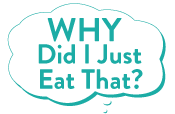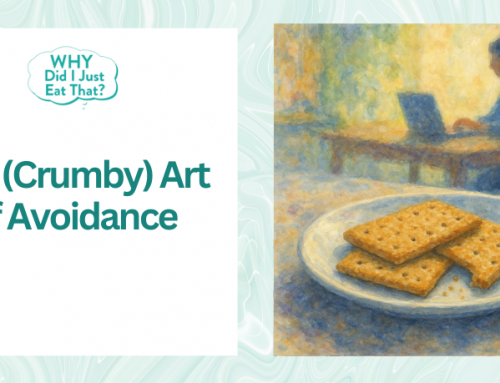Here’s the scene: Sarah is at work, looking forward to the weekend, when she receives an email from her boss. It is a long reprimand, criticizing the assignment she just completed. And, truth be told, there were a few minor flaws in her latest report, though not all of them were even her fault. The question is… how should Sarah handle this situation?
Two Paths: React or Respond
1. The Reactive Path: Sarah’s knee-jerk reaction might be to fire off an angry reply, defending herself and pointing out her boss’s misguided or over-blown feedback. Of course, such a reaction could very well lead to heated exchanges of grievance emails, ultimately straining their working relationship.
2. The Responsive Path: Sarah takes a few deep breaths, giving herself time to digest the feedback. She considers her performance and her boss’s perspective, identifying valid points and potential blind spots on her boss’s part. After a short break—maybe she stretches her legs, maybe she gets a drink of water—she drafts a professional, thoughtful reply that acknowledges the criticism and discusses ways to improve both her work and their overall relationship.
I think it is pretty obvious which choice I’d recommend! While the reactive path might feel satisfying in the moment (though she just might have misgivings about it right after hitting “send,”) the responsive approach is clearly more constructive and beneficial in the long run.
The Power of Responding
Responding—instead of reacting—is a crucial aspect of effective decision-making. When faced with stressful situations, it’s natural for our first instinct to be triggered by emotions. However, by pausing, assessing the situation, and then following up thoughtfully, we can achieve much better outcomes.
Reducing the urge to react impulsively leads to reduced overall stress and an enhanced sense of control in our daily lives. By pausing and assessing our emotions, thoughts, and potential consequences, we enable ourselves to make more informed and rational choices. Over time, we can grow better equipped to communicate and address conflicts in a thoughtful manner, creating confidence in ourselves to handle difficult situations.
When we take the time to make sure our responses are clear-headed, we can navigate life’s complexities more effectively. This ultimately improves our well-being, as well as the well-being of the other people in our lives. Measured emotional intelligence and applied self-regulation will beat unthinking impulsiveness every time! And one of the most effective ways to get past being triggered by emotional upset is to embrace mindfulness!
Mindfulness is the Key to Thoughtful Responses
At its core, mindfulness is all about experiencing the here and now, free from the nagging pull of outside distractions and self-judgment. It has us tune into our thoughts, our feelings, and our immediate world without getting lost in reflections of the past or anxieties about the future. This mindset helps us be more in tune with ourselves, fostering a sense of balance and clarity;\happiness and well-being.
In this instance—for Sarah—mindfulness plays a significant role in her ability to respond rather than react. We might even step through the handful of steps to show Sarah’s mindful response:
1. She acknowledges her immediate emotional reaction (e.g., wanting to say “Screw you, Boss!”)
2. She then recognizes that it’s okay to have this initial feeling.
3. Very importantly, she takes the time to allow the feelings to pass without acting on them!
4. To the best of her ability, she assesses the facts with clarity, once the emotional distraction has subsided.
5. She chooses rational, constructive action steps and follows up appropriately.
The good news is that by practicing mindfulness and self-control in challenging situations, we, like Sarah, can develop increased emotional maturity and resilience in our day-to-day lives.
Responding vs. Reacting in our Relationship with Food
The dynamics of responding vs. reacting also play a significant role in our relationship with food. Reacting to emotion-triggers can lead to stress eating, to binge eating and to eating simply because the food is available, right in front of us. (And sometimes, even food itself is triggering!) Such reactive behaviors can contribute to an out-of-balance relationship with food and may lead to feelings of guilt, shame, or frustration.
On the other hand, when responding (as opposed to reacting) to our emotion-triggers, we might at first consider self-soothing with food. That is a perfectly understandable reaction, even if it may not be terribly beneficial. But when our mindful sensibilities kick in, we can steer our focus away from reflexively consuming food to more empowering thoughts. We take a moment to assess our hunger level. If we are not hungry, we might take a beat to recognize our triggered instinct to use food as a coping mechanism. We can then shift our focus to responding to emotion-triggers with non-food ways to self-soothe.These comforting alternatives might include breathing exercises, going for a walk, calling a friend, or engaging in a creative hobby.
Note: If you find there is a pattern of using food as a go-to in times of stress, I recommend keeping a Mood/Food diary: Before eating, take a moment to reflect on feelings, hunger level, and any emotion-driven reasons behind the inclination to eat. Keep track of these data points as feedback on your progress. (I discuss using a Mood/Food diary in greater detail in the “Food Cuddler” section of my book.)
The Take-Away
Everyone feels provoked from time to time. And shifting from being a reactive person to a responsive person may feel like a daunting challenge. Yet awareness of the reaction vs response dynamic, combined with a growing ability to embrace mindfulness, are all part of the growth process. Make sure that a big part of your process includes a generous helping of self compassion..




